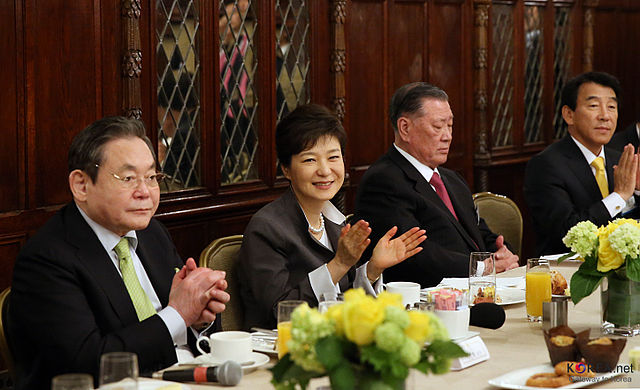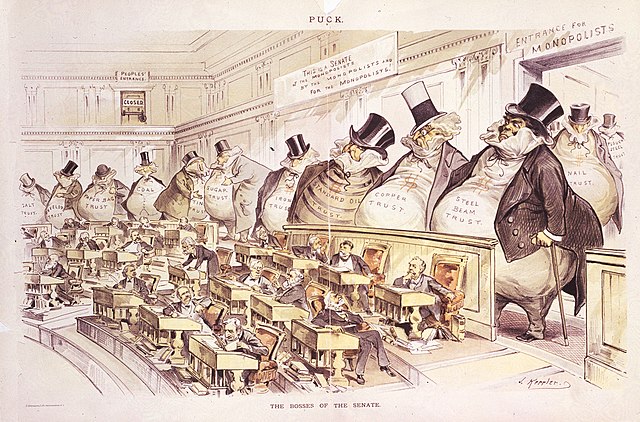Crony capitalism, sometimes also called simply cronyism, is a pejorative term used in political discourse to describe a situation in which businesses profit from a close relationship with state power, either through an anti-competitive regulatory environment, direct government largesse, and/or corruption. Examples given for crony capitalism include obtainment of permits, government grants, tax breaks, or other undue influence from businesses over the state's deployment of public goods, for example, mining concessions for primary commodities or contracts for public works. In other words, it is used to describe a situation where businesses thrive not as a result of free enterprise, but rather collusion between a business class and the political class.
South Korean President Park Geun-hye at a breakfast meeting with business magnates Lee Kun-hee and Chung Mong-koo. A group of massive, mostly family-run business conglomerates, called chaebol, dominates South Korea's economy.
"The Bosses of the Senate", corporate interests as giant money bags looming over U.S. senators
In politics, regulatory capture is a form of corruption of authority that occurs when a political entity, policymaker, or regulator is co-opted to serve the commercial, ideological, or political interests of a minor constituency, such as a particular geographic area, industry, profession, or ideological group.
Interstate Commerce Commission (ICC) as Barrier-to-Competition: Applications-to-Operate vs In-Operation



